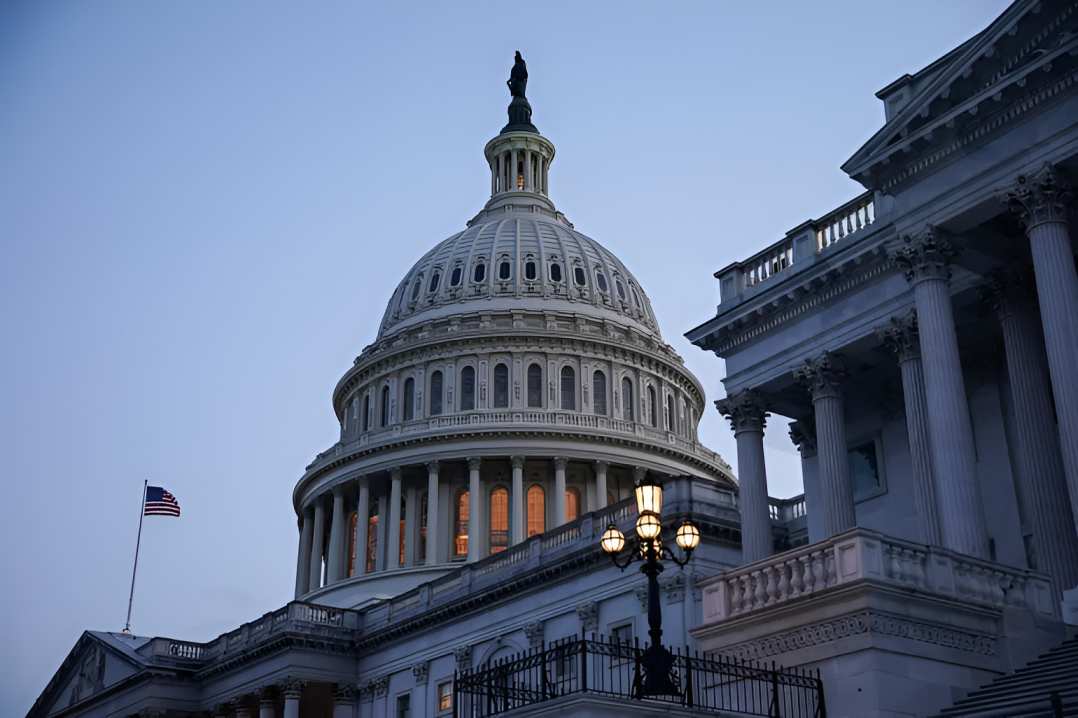US plans 5 percent tax on remittances from non-citizens

The proposed legislation, titled One Great and Beautiful Tax Bill, was introduced in Congress on May 12, 2025.
Kenyans living in the United States may soon pay more to send money home if a new US Bill proposing a 5% tax on remittances by non-citizens is passed into law.
The proposed legislation, titled One Great and Beautiful Tax Bill, was introduced in Congress on May 12, 2025.
It would require remittance service providers to deduct the tax at the time of transfer, unless the sender can prove they are a US citizen or have legal status.
The funds collected would go directly to the US Treasury.
"There is hereby imposed on any remittance transfer a tax equal to five per cent of the amount of such transfer," the Bill states.
If passed, the law would mark a shift in US tax policy, where remittances have so far not attracted federal tax.
The proposal is part of a broader legislative effort to strengthen financial oversight linked to immigration and limit access to public benefits for undocumented individuals.
According to Section 112105 of the Bill, the sender would bear the cost of the tax.
Remittance providers, such as banks and wire services, would be responsible for collecting the funds and sending them to the Treasury every quarter.
They would also be held accountable for any tax that goes uncollected, unless the transfer is made through a verified provider and the sender proves US citizenship or national status.
The Bill includes a provision for a refundable tax credit for those with valid Social Security numbers who are taxed under the new law.
It also introduces an anti-conduit rule to prevent people from bypassing the tax by using intermediaries.
Besides remittances, the Bill also seeks to tighten rules around federal benefits.
It would limit access to programmes such as Obamacare and Medicare premium tax credits to individuals who have verified Social Security numbers, with the aim of stopping public resources from benefiting undocumented immigrants.
The House of Representatives plans to vote on the Bill by May 26, Memorial Day. President Donald Trump is expected to sign it into law on July 4, Independence Day.
If passed, the law would take effect immediately, with the tax applying to all transfers regardless of the amount or purpose.
The proposal has sparked concern among immigrant communities, especially in Africa, where remittances are a lifeline for millions. Kenyans in particular could feel the impact sharply.
Data from the Central Bank of Kenya (CBK) shows that the United States remains the top source of remittances to Kenya, contributing 53% of the total inflows.
In the first quarter of 2025 alone, Kenyans abroad sent home $1.23 billion (Sh159.5 billion).
January recorded $427.4 million (Sh55.4 billion), February saw $382.2 million (Sh49.6 billion), and March registered $422.9 million (Sh54.8 billion).
This marked an increase of $26.4 million (Sh3.4 billion) compared to the same period in 2024.
CBK noted that inflows in March 2025 rose by 3.7% from March 2024, reaching $422.9 million (Sh54.72 billion), up from $407.8 million (Sh52.74 billion).
The total remittances for the 12 months ending March 2025 amounted to $4.972 billion (Sh642.85 billion), a 13.5% rise from the $4.380 billion (Sh566.43 billion) recorded the previous year.
"These inflows continue to support the current account and the foreign exchange market," CBK stated in its latest bulletin.
Globally, remittances are an increasingly vital part of many economies.
In 2023, the World Bank estimated that remittance flows reached $656 billion (Sh84.88 trillion), surpassing foreign direct investment in low and middle-income countries.
Most of these funds are transferred through American wire services rather than traditional banks, which means the proposed tax could reach a wide range of senders.
As the Bill moves through Congress, advocacy groups and financial experts warn that it could discourage formal remittance methods and drive transfers underground.
They caution that such a shift would hurt both the senders and the families relying on this financial support in countries like Kenya.
If enacted, the law will affect not only Kenyans in the US but also the global remittance system, potentially reshaping how money moves across borders.
